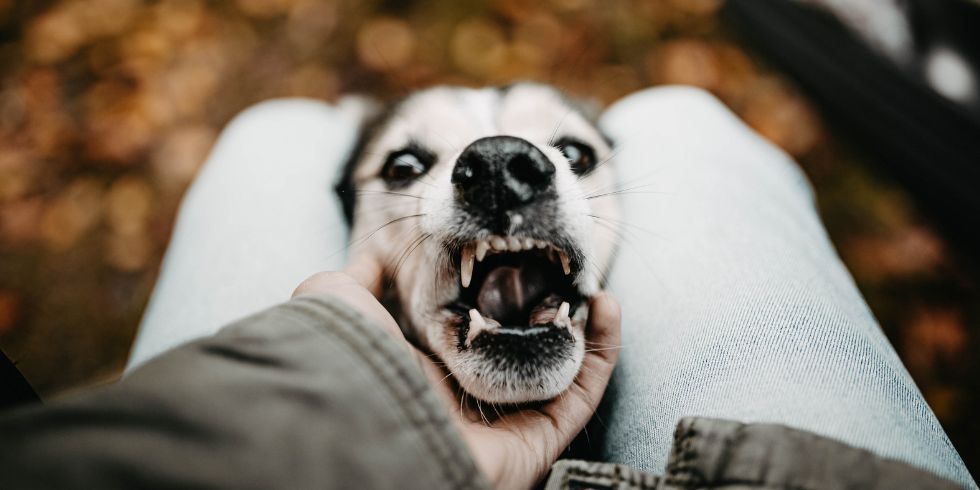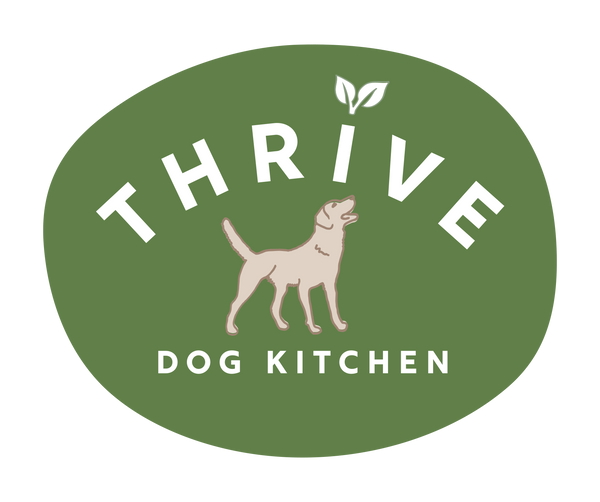
The Gut-Behaviour Connection: How Gut Health May Influence Aggression in Dogs
Share
Introduction to the Gut Microbiome
A healthy microbiome underpins the overall health of a dog, which is critical to supporting your dog from puppyhood through to their retirement years.
The gut microbiome is one of many microbiomes that exist in and on dogs. It is a diverse community of microorganisms, including bacteria, fungi, and viruses, that naturally reside in and on your dog’s body, with the majority living in their gastrointestinal tract. This gut microbiome plays a crucial role in your dog's overall health, both physically and mentally.
The gut is connected to everything that happens in the dog’s whole body, including behaviours like timidness, aggression, anxiety and depression.
Like human fingerprints, a dog’s microbiome is unique to them, influenced by factors such as age, breed, lifestyle, health, diet, and more. The balance between good and bad bacteria within the gut microbiome can significantly impact a dog’s well-being. But what happens if this balance is disrupted? Can it affect a dog’s behaviour? If so, how?
Link Between Gut Health and Behaviour
Have you ever experienced butterflies in your stomach or had a gut feeling? That’s your gut and brain communicating—a connection often referred to as the gut-brain axis.
The gut microbiome can influence the brain and central nervous system through this gut-brain axis, a bidirectional communication system that sends signals from the gut to the brain and vice versa. The gut produces three key chemicals that influence behaviour:
- Serotonin: The chemical that promotes emotional well-being
- Dopamine: Responsible for motor functions, decision-making, and hormone regulation
- Gamma-Aminobutyric Acid (GABA): Regulates stress and anxiety; and affects sleep patterns.
When the balance of bacteria in the gut is disrupted, it can lead to changes in behaviour. Some bacteria produce calming chemicals, while others may contribute to feelings of aggression or anxiety.
As the brain and gut are closely related, “Anytime inflammation is present in the gut, there is also inflammation created in the brain.” Odette Sutter, DVM. The key is to bring the microbiome back into balance.
Research Findings on Aggression
Recent studies suggest that the gut microbiome may influence a dog's behaviour, including aggression. Diet plays a critical role in these findings, but it's important to note that research in this area is still developing, and there are conflicting results.
For example, one study found that aggressive dogs had higher levels of certain behaviour-related microorganisms, while another study found these microorganisms were more prevalent in phobic dogs than in aggressive ones. This variability highlights the need for further research.
Additionally, while these studies show correlations between the composition of the microbiome and behaviour, they do not establish causation. The connection between gut health and behaviour is still in its infancy.
Common Causes of Gut Imbalance
Several factors can disrupt the balance of a healthy microbiome, including:
- Environmental Factors: Exposure to chemicals, fertilisers, antibiotics, contaminated water, artificial sugars, and non-steroidal anti-inflammatory drugs (NSAIDs).
- Emotional Stress: Trauma, phobias, anxiety, and aggression.
- Gastrointestinal Disease: Poor diet, nutrient deficiencies, and digestive issues.
Signs of Gut Imbalance in Dogs
While some dogs may have a gut imbalance without obvious symptoms, common signs according to Dr. Judy Morgan DVM include:
- Constipation
- Diarrhoea
- Vomiting
- Stinky farts
- Excessive drooling
- Reduced appetite
- Weight loss
Your dog may exhibit one or multiple symptoms. If severe symptoms occur, seek the advice of your local vet for the best treatment options.
Improving Gut Health: Gut Microbiome and Diet
Diet has a significant impact on the gut microbiome's quality. Dogs are not designed to eat a high percentage of carbohydrates. However, a significant number of dogs eat a kibble-based diet, which is high in carbohydrates. This may limit the diversity of bacteria in the gut microbiome.
Dogs that eat a varied diet of fresh foods tend to have a more diverse gut microbiome than those on a predominantly ultra-processed diet. Feeding a balanced fresh food diet with a range of ingredients can help heal and support the gut microbiome. However, not every dog parent is in a position to provide such a diet, and some dogs may refuse to eat fresh foods.
Regardless of whether your dog thrives on fresh food or if kibble is your preferred choice, including certain ingredients can still support gut health:
- Prebiotics: Substances that nourish and support the growth of beneficial bacteria. Examples include mushrooms, coconut, dandelion greens, apples, and green bananas.
- Probiotics: Healthy bacteria that help restore the gut microbiome. Found in fermented foods like sauerkraut, kefir, and yogurt.
- Proteins: Offering a variety of fresh protein sources helps diversify the gut microbiome. Rotate between different animal sources.
- Omega-3 Fatty Acids: Reduce inflammation and promote overall health, including gut health. Salmon, sardines, and anchovies are excellent sources of Omega-3 Fatty Acids.
Takeaway Message
Understanding and supporting your dog’s gut health is an essential part of managing aggressive behaviour. By paying attention to diet and environmental factors, you can help maintain a balanced gut microbiome, contributing to your dog’s overall well-being and behaviour.
